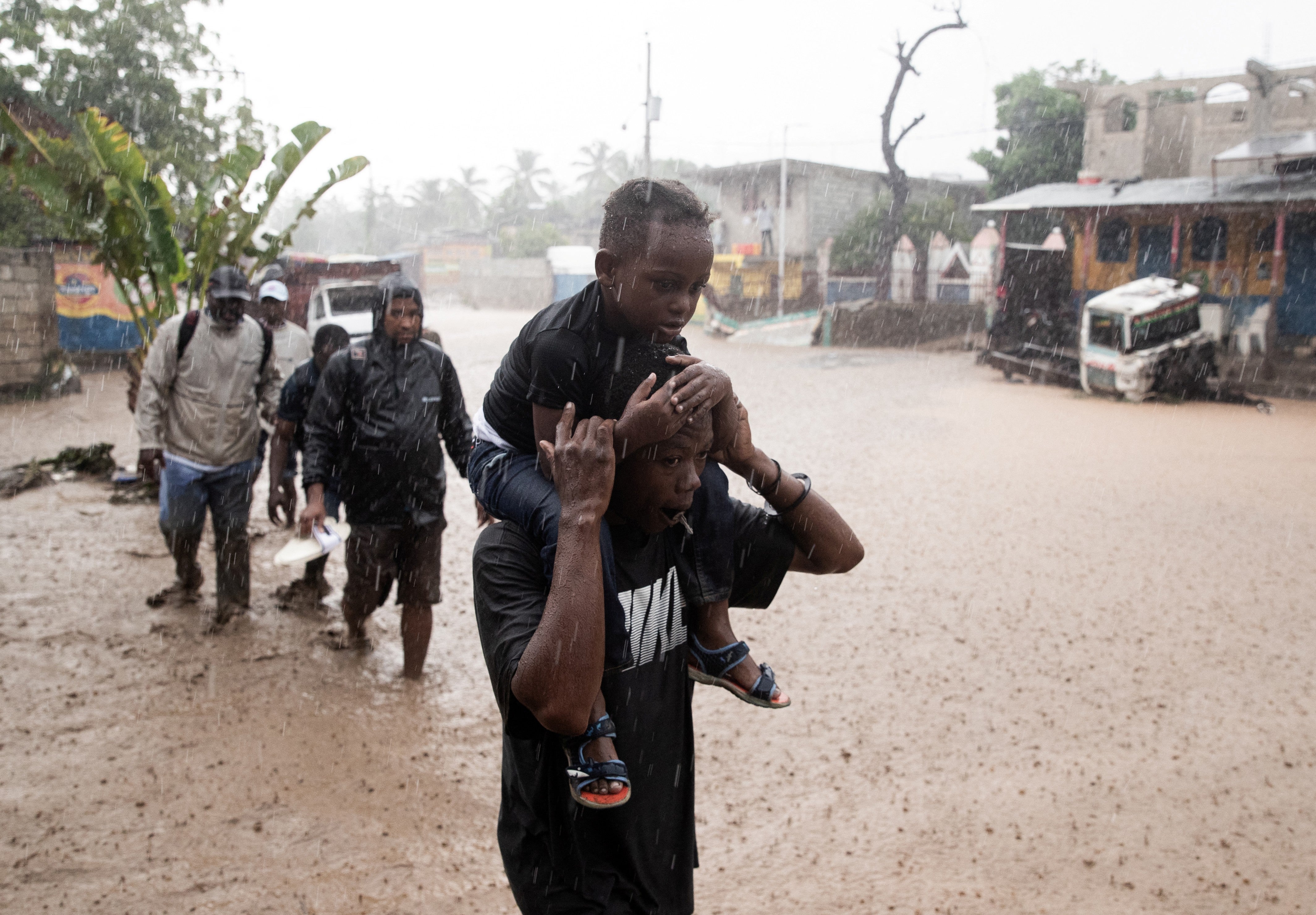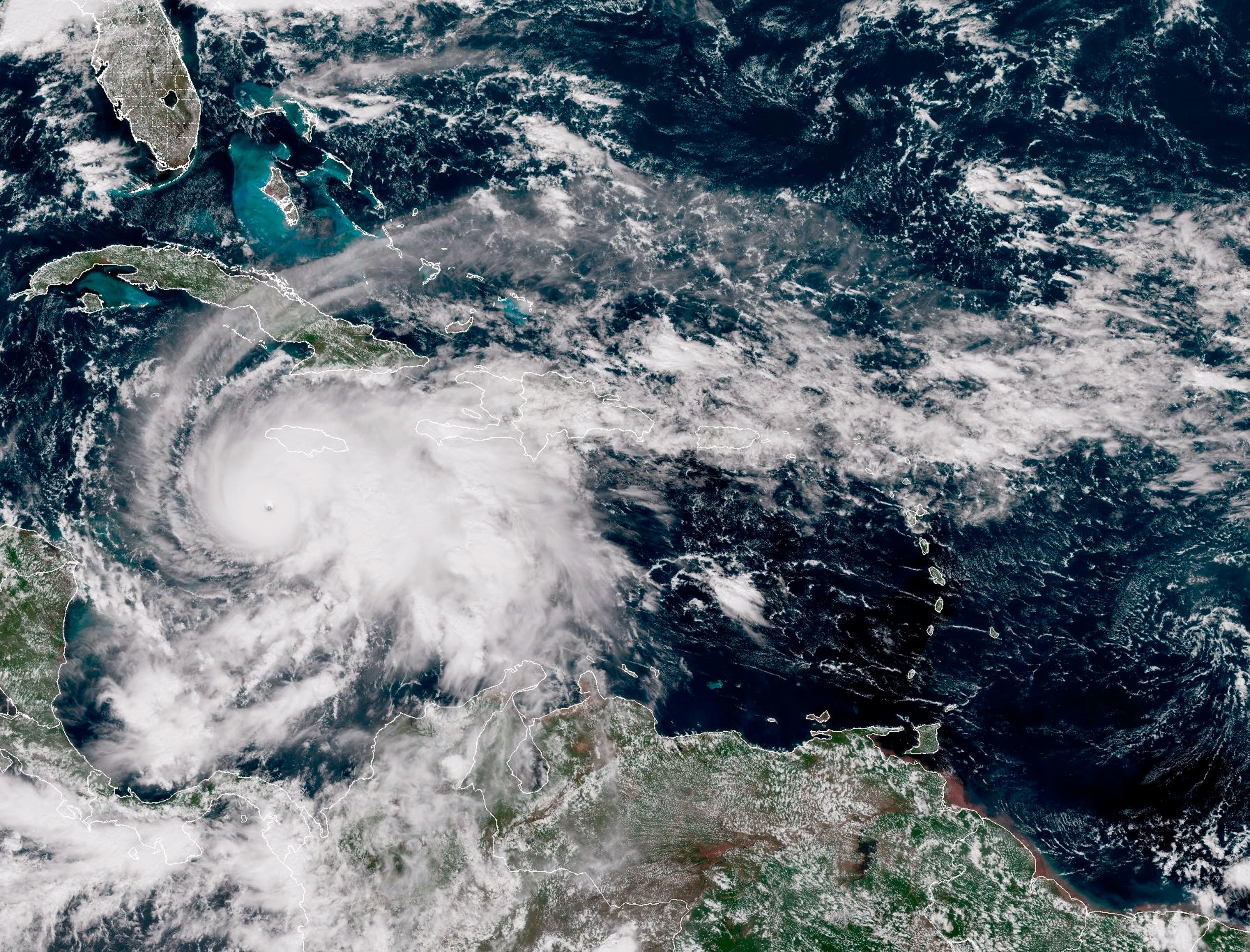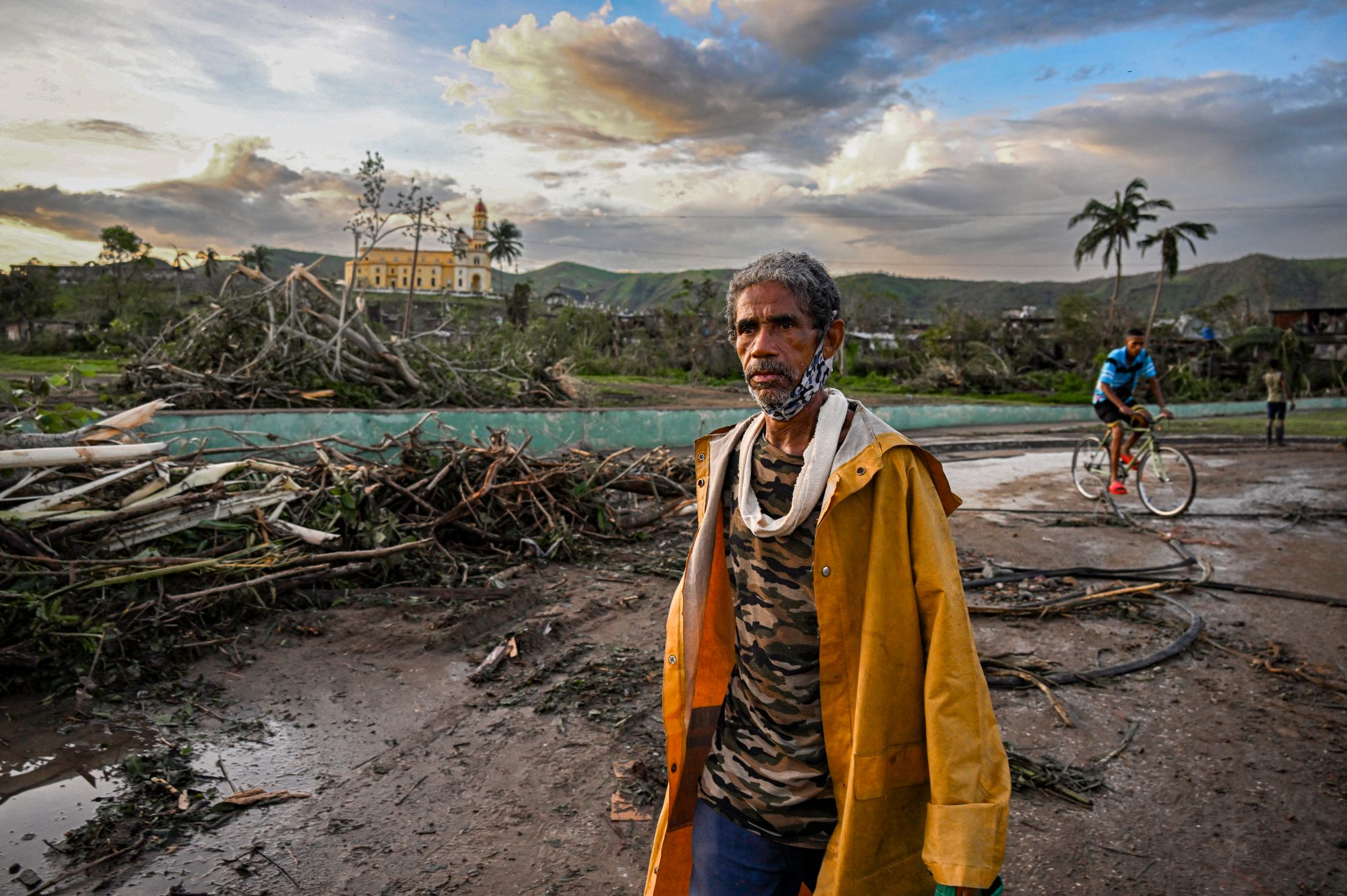Thought Category 5 was as bad as a hurricane could get? Think again.
As Hurricane Melissa barrels off into the Atlantic after devastating Jamaica and Cuba, some scientists say the age of Category 6 hurricanes is now upon us.
Storms fueled by human-caused climate change are stronger, intensify more rapidly and move faster than ever before, bringing destructive winds that rip off roofs and flooding coastal communities with feet of fast-moving ocean water that can linger for days after the immediate danger has passed, experts say.
Hurricanes are already exceeding the highest level of the wind-driven Saffir-Simpson Hurricane Wind Scale, which measures the amount of damage expected, capping off at “catastrophic” maximum sustained wind speeds of 157 miles per hour. Five tropical cyclones that formed since 2013 would have been deemed Category 6 hurricanes if such a classification existed.
Now, experts believe the 5 scale may no longer meet the moment and this week’s Hurricane Melissa is reinforcing that belief.
The Category 5 storm – Jamaica’s worst on record – came close to a Category 6 hurricane, climatologist Dr. Michael Mann, Presidential Distinguished Professor in the Department of Earth and Environmental Science at the University of Pennsylvania, told The Independent.
It’s been proposed that such a hurricane would have maximum sustained winds of 192 miles per hour and could do much more damage than structures designed to withstand Category 5 winds are able to handle.
“I wouldn’t rule out that in post-season analysis, the wind estimates are upgraded, possibly breaching the ‘Cat. 6’ cut-off),” he said in an email, agreeing that these supercharged storms are the new normal and that we need to rethink how they are classified going forward.
“As long as we’re using wind-based metrics, it simply doesn’t make sense (mathematically, or fiscally and sociologically) to artificially cap the scale at 5 any more,” he said.
Adding Category 6 to the 2010-dated Saffir-Simpson scale would recognize the increasingly worrisome effects of climate change on hurricanes, including the greater risk of damage posed by worse storms, Dr. Katharine Hayhoe, Chief Scientist of The Nature Conservancy, told The Independent.

She believes that there may also need to be a “full redo” of the scale to take precipitation into account, which is responsible for the majority of hurricane-related economic impacts.
“The argument over whether or not to add a Category 6 to the Saffir-Simpson scale actually ignores the forest for the trees because we’re now seeing that flooding damage is arguably just as if not a greater issue,” said Hayhoe.
However, not all scientists agree there’s a need to add to the scale — or even feel that strongly about it.
“I don't think we need a Category 6. Uninhabitable for weeks or months is about as bad as it gets with hurricanes!” Colorado State University meteorologist Dr. Phil Klotzbach told The Independent in an email.
“The Saffir-Simpson scale has been around for decades,” Dr. Zachary Handlos, director of the Atmospheric and Oceanic Sciences Undergraduate Degree Program at Georgia Tech University, told WCNC. “If we change it, it becomes difficult to compare new storms to old ones unless we reanalyze past data. We’d be moving the goalposts for what defines a ‘major’ hurricane.”
“I don’t firmly feel either way,” meteorologist Jeff Berardelli wrote in a post on X. “But I do think if we continue to see these ‘league of their own storms then we need a way to separate ‘the men from the boys,’ if you will.”
What that may look like remains uncertain, but the reality is that climate change is making furiously strengthening storms like Melissa more likely, with major threats to humanity.

Melissa was one of the fastest intensifying storms of all time and tied for the most powerful storm for wind speed and pressure in the North Atlantic.
A recent study from Imperial College London found that Melissa was made four times more likely by human-induced climate change, boosting its wind speed by 11 miles per hour.
Warming ocean temperatures are part of what’s making hurricane winds stronger, Daniel Gilford, a meteorologist and atmospheric scientist with Climate Central, told The Independent.
“In the case of Melissa, we found that the extra ocean warming … increased Melissa’s intensity by something by 10 miles per hour which pushed it up to 185 miles per hour [maximum sustained winds],” he explained.

“So, we are sort of in this regime where these storms are kind of what we would think about as at the very top of our scale when it comes to intensity for the Saffir-Simpson scale.”
And, unless atmosphere-warming greenhouse gas emissions produced largely by the fossil fuel industry are curbed, these threats will continue to get worse.
“We are stuck with the world that we have now. We are stuck with the climate warming that we’ve experienced – about 1.3 degrees Celsius since pre-industrial [levels]. We are going to live during with our lifetimes with that temperature,” said Gilford. “So, these hurricanes are going to be more intense during our lifetimes.”
“But we can reduce how much worse they get in the future by taking immediate action to cut our climate emissions right now,” he added.
Away from Brazil’s ‘forest’ Cop30 – the fate of the Congo hangs in the balance
How climate change could be ruining your sleep
Brazil’s oil drive in run up to Cop30 slammed by indigenous activist
Money to fight climate crisis falls by £1.5bn – and aid cuts will make things worse
The newest risk that could make 3 million homes ‘worthless’
‘Anti-Greta’ climate denier Naomi Seibt seeking asylum in the US







